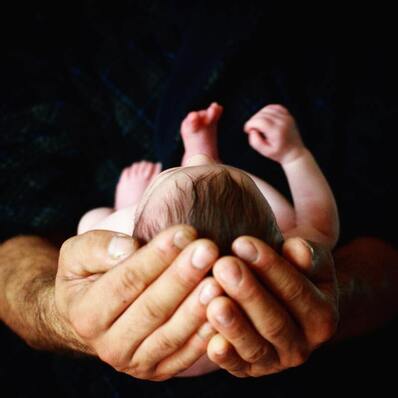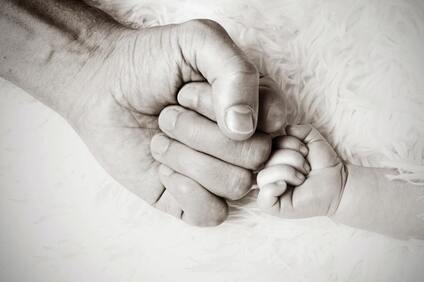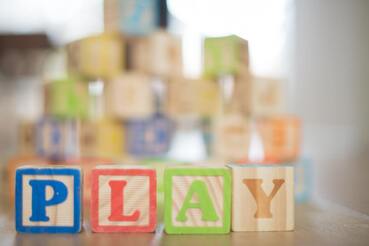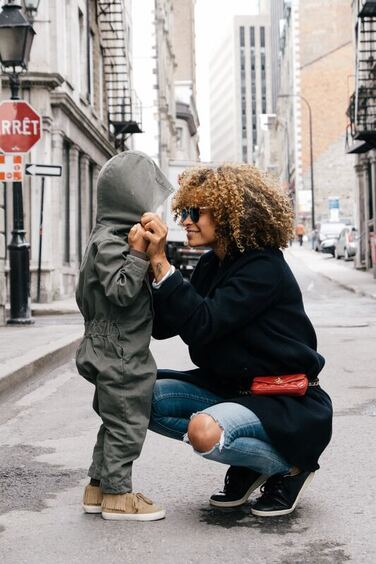 It can be hard for parents, caregivers, and teachers to recognize behavioral or emotional distress in children early on. So much so that it is often missed. Even when signs of mental health need are noticed, we may hold the misconception that it is something that will alleviate itself. While this may be true in some cases, it is not for all. Research suggests that mental health disorders increase as children grow older (Ghandour et al., 2019) and up to one in five children meet criteria for a mental health diagnosis related to behavior, anxiety, or ADHD (Perou et al., 2013). These mental health issues often originate before the age of five, fueling the need to focus on early childhood mental health. What is early childhood mental health? Infants and young children can be at risk for mental health issues which, when left unaddressed, can have a lifelong negative impact. For children aged birth to five, mental health is defined as the development of social emotional skills. Social emotional skills include the ability to experience a range of emotions, form nurturing relationships, and engage in discovery/learning. (Zero To Three, 2017).
Learning how to engage socially can be a long process. Rather than focusing on it all at once, taking one interaction at a time allows you to break down the process and make it less overwhelming. In this way, you are providing opportunities for your children to have success engaging with their peers and supporting the development of social-emotional skills.
The following steps may help you support positive social experiences for children with ADHD: Small Steps that Can go A Long Way These are not “normal” times and so we are all adjusting and trying to figure out our new normal. For parents, there is a double challenge of finding this new normal for yourselves as well as our children. But know that you are not alone in this journey and there are a few principles that can help guide you at this challenging time. How to Incorporate Mindfulness into Your Daily Parenting Practices and Manage Challenges
 Azine Graff, PsyD It seems to happen out of nowhere... you become the primary caregiver in the family. You're the one who chooses ideas for meals, picks out clothes and dresses the kids and takes them out on errands. You become their go-to parent for questions, ouchies, and so much more. Before you know it, you feel exhausted and depleted, and you are wondering how this came to be. You wonder if biology had anything to do with your mental load or if this was society's influence on traditional masculine and feminine roles. You wonder how your egalitarian relationship took a turn once you had a child. Many relationships continue in this way. Parents feel exhaustion and perhaps resentment, due to a lack of equanimity in the relationship. But it doesn't have to stay like this. You can take some steps towards the life you pictured having. A life where you are working with your partner instead of feeling the weight of doing everything. Continue reading on Mother.ly |
Categories
All
Disclaimer: Information and resources provided on the internet by Harmony in Parenting - A Psychology Center, Inc. does not constitute psychotherapy, a replacement for a therapeutic relationship, or a substitute for mental health or medical care. If having a psychiatric emergency, please visit your nearest emergency room or call 911. |
NOW OFFERING ONLINE THERAPY
(818) 810-7079 | 16550 Ventura Blvd UNIT 318 Encino, CA 91436
Harmony in Parenting - A Psychology Center, Inc.
16550 Ventura Blvd UNIT 318 Encino, CA 91436
(818) 810-7079
Harmony in Parenting offers therapy for children, parents, and adults residing in Encino, Sherman Oaks, Studio City, Tarzana, and Woodland Hills.
Telehealth and video therapy services are available for residents of California.
© 2024 HARMONY IN PARENTING - A PSYCHOLOGY CENTER, INC. ALL RIGHTS RESERVED.
DISCLAIMER PRIVACY POLICY NOTICE OF PRIVACY PRACTICES TERMS OF SERVICE GOOD FAITH ESTIMATE NOTICE


